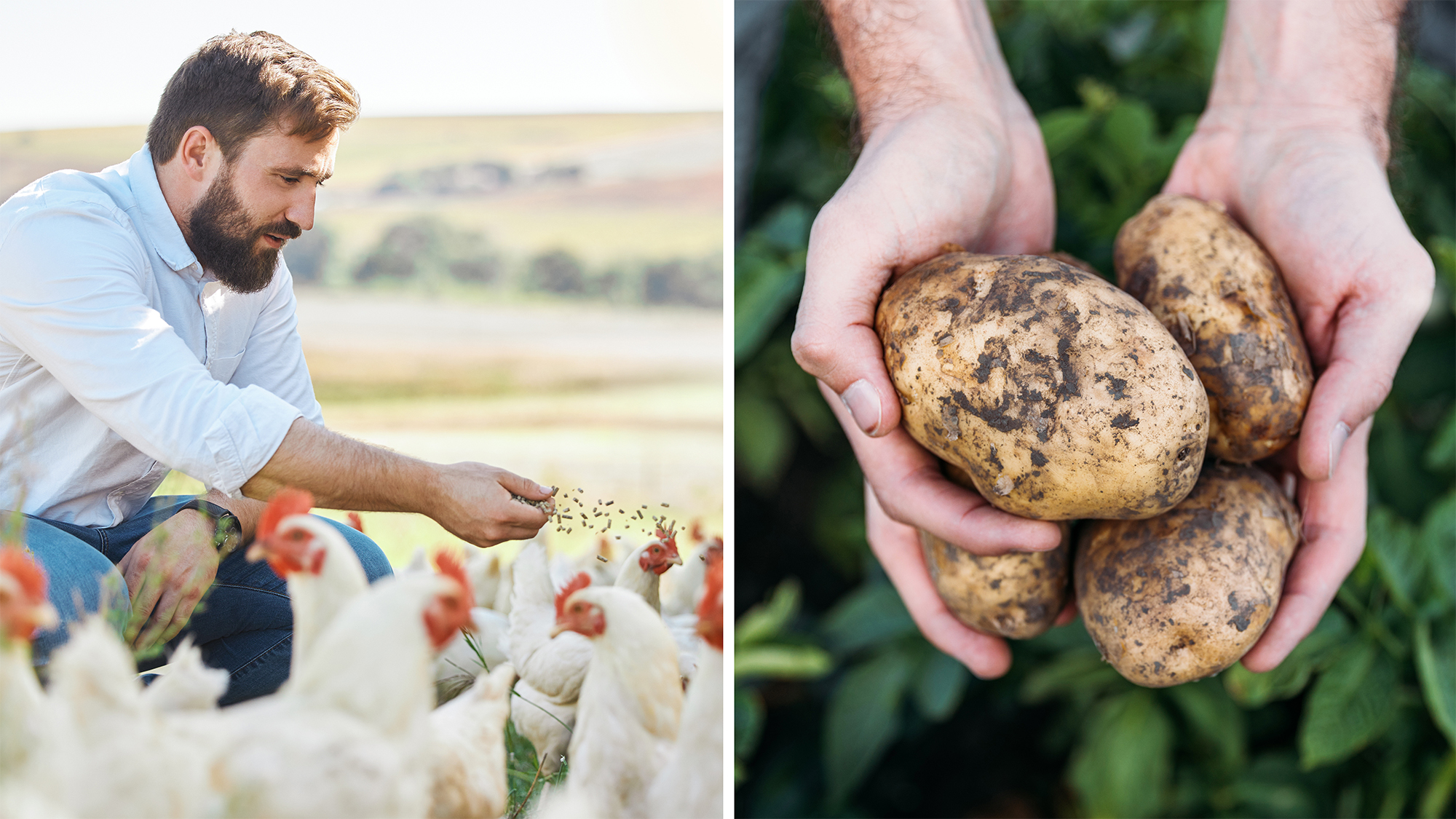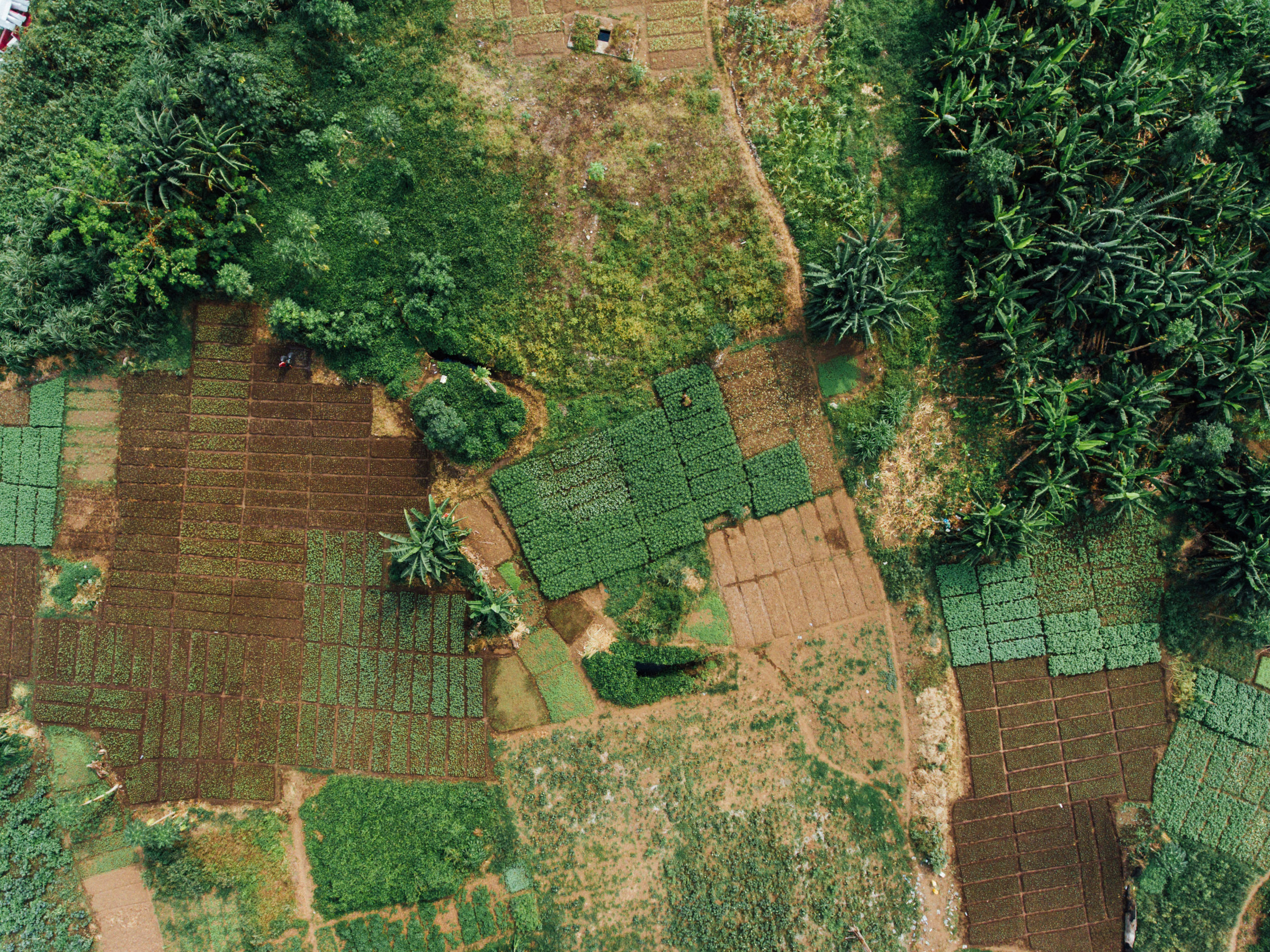Precision breeding – a new tool in the farming toolbox
Discover more about this genetic technology including the potential benefits for UK agriculture and food production organisations that adopt this modern biotechnology.

What is Precision breeding?
There are many definitions of what this technology means. In this instance, we have paraphrased Defra’s definition:
A precision bred organism is an organism whose genome has been altered using modern biotechnology, such as gene editing. These modifications are stable and could have resulted from traditional processes, whether in conjunction with selection techniques alone or not. Additionally, the genome must not contain any feature introduced by artificial modification techniques other than modern biotechnology.
The technology itself is not new as organisations and scientists have been using it for research purposes for many years. However, the products from this technique were previously classified in the same way as genetically modified organisms (GMOs) which are banned for sale in the UK.
What risks are there from this technology?
As with all new technologies and innovations, it is appropriate to consider and mitigate against any negative consequences that could occur from their introduction. For instance, as the technology will be used to produce food for human consumption as well as feed for animals, we need to have appropriate mechanisms in place to ensure the safety of consumers, the environment, and even wider global issues. Below are some concerns raised in the media in response to the Precision Breeding Act gaining Royal assent in 2023:
- Consumer concern regarding the need for labelling and traceability to enable informed consumer choice.
- Potential for the development of more resistance traits in crop diseases.
- Potential for unforeseen consequences, especially regarding the environment and natural ecosystems.
- Concerns about global economic equality:
- Potential for lost income in some countries (if we can grow those crops in England).
- There is greater value for poorer countries from this technology, but they may not have access to it.
The Food Standards Agency (FSA) launched a public consultation (November 2023 – January 2024) to gather responses from consumers, stakeholders in relevant sectors, non-governmental organisations, enforcement bodies and third-party assurance organisations on policy proposals for a new framework for the regulation of Precision Bred Organisms (PBOs) used for food and feed in England under the Genetic Technology (Precision Breeding) Act 2023.
The key proposals that they sought views on were:
- A two-tier, pre-market authorisation process.
- A public register of PBOs authorised for use in food/feed.
- Proposals for traceability.
- Enforcement provisions.
Responses received were linked closely to the process and requirements of the regulatory framework proposed by the FSA. FSA has reviewed the responses and reported them to their Board and Defra, who are the policy owners.
For further information on this consultation please visit the relevant FSA webpage.
What is the current situation with the legislation?
The Bill making precision breeding in plants and animals legal in England (decisions on this topic by the devolved administrations in the UK have still to be made) has now been granted Royal Assent and passed into law, having been approved in both the House of Commons and the House of Lords. The purpose of the Bill is to ensure that the appropriate regulatory steps are in place and are proportionate to the risks. More information on the Genetic Technologies Act can be found on the Defra website.
The opportunity to enact this change in legislation was made possible following the UK’s exit from the European Union. UK nations were empowered to bring in new laws for our nation. In recognition of the amazing bioscience sector present in the UK, the Government agreed to review rules around anti-genetic modification. This step led to the development of the Genetic Technology Act.
A framework of secondary legislation will ensure the health and welfare of animals affected by this technology, and of consumers of plant and animal products generated in this way. The Rt Honourable Steve Reed, secretary of state for Defra announced at the recent Oxford Farming Conference (9 January 2025) that the government will introduce the secondary legislation required to allow farmers to grow precision bred crops by the end of March 2025.
What does this mean for English organisations?
As the regulatory framework comes into force, researchers and businesses can accelerate their work using this technology. Once the legislation is in place, precision bred crops and animals can be marketed, grown, and consumed in England as well as in other countries where this technology is approved.
The technology has the potential to empower farmers and growers to produce food that is more nutritionally beneficial, requires fewer pesticides, is more resilient to climate change, and offers many other traits that will help the UK become more food secure over the coming decades.
The regulatory framework will also simplify the authorisation process for precision bred products, making the use of the technology more affordable for small and medium sized enterprises.
In Wales, Scotland, and Northern Ireland, these organisms will remain classified as genetically modified organisms for the time being.

How can precision breeding make a difference?
Below are some examples of how precision breeding technologies can deliver innovations that benefit agriculture and food production.
-
Avian flu
Scientists from Imperial College, the University of Edinburgh, and the Pirbright Institute are working together to prevent avian flu virus from infecting birds by changing a small part of their DNA.
The virulent H5N1 strain of avian flu is devastating seabird and commercially produced poultry populations globally.
The research team produced chicks with small edits to the ANP32A gene. The protein from this gene is hijacked by the flu virus, allowing it to replicate. Following infection with avian flu, 9 out of 10 gene-edited chicks remained uninfected. They also observed lower levels of transmission from infected chicks to non-edited chicks. Equally important is that no negative effects were observed in any of the chicks (edited or not). Further work is ongoing to increase resistance to the virus by making edits to other related protein genes. Read more information here.
-
Improving potatoes
The TuberGene project, which was funded by the UKRI Technology Missions Fund which seeks to use engineering biology to solve problems in several sectors. This project, led by B-hive Innovations in collaboration with potato producers Branston Ltd. and scientists from the James Hutton Institute, aims to use gene editing to make small changes and produce new potato varieties with reduced bruising, improved nutritional value, and faster cooking traits.
These innovations will help reduce waste in the potato sector from retail sector rejections and align more closely with consumer expectations and needs.
Related Opportunities
Farming Futures R&D Fund: Precision Breeding
Opens: 05/05/2025 Closes: 25/06/2025
UK registered businesses can apply for a share of up to £12.5 million for precision breeding of arable and horticultural crops.
More Information
Related Events and Recordings
Thu
1
May
2025
Farming Futures R&D - precision breeding consortium building
10.00 - 16.00 GMT | Peterborough
Slides now available
Related content

AgriFood
Innovate UK Business Connect helps organisations interested in AgriFood innovation access the expert information, funding and connections needed to drive change. Our experts work with businesses of all sizes; locally, nationally and globally.




